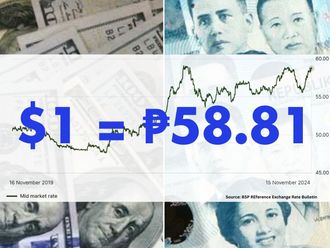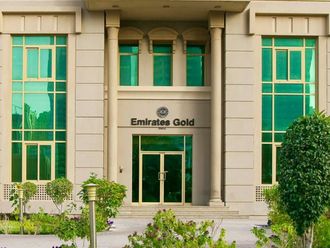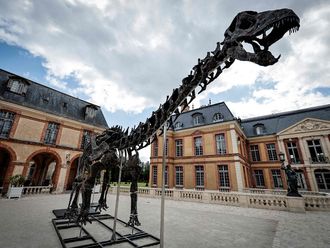Los Cabos: Latin America must avoid the costly welfare policies plunging Europe into crisis and should adhere to a market-friendly course to preserve gains made over the past decade’s economic boom, Chilean President Sebastian Pinera said.
Countries in the region like Chile that have maintained open economies and fiscal discipline will fare better during a global slowdown than those pursuing “a different model” like Cuba, Venezuela and Bolivia, Pinera said in an interview yesterday in Mexico, where he’s attending a Group of 20 summit.
“We don’t want to put at risk everything we’ve done up to now,” said Pinera, a 62-year-old billionaire businessman who was elected in 2010 on a pledge to make Chile the first developed country in Latin America. “Take a look at European countries, that’s the path that we do not want to follow.”
Chile’s recent economic resilience should serve as a lesson for a region increasingly adopting protectionist policies, Pinera said. Even in the face of weaker demand from China, the world’s top copper producer will grow 4.9 per cent this year, surpassing the 3.7 per cent average for Latin America, according to a forecast this month by the United Nations’ economic unit for the region.
Pinera’s defense of a minimalist state has generated a backlash at home, where students demanding a bigger role for the state in education have been staging protests for more than a year. Pinera’s approval rating was 24 per cent in April — the lowest level of any president since Chile’s return to democracy in 1990, according to Santiago-based pollster CEP.
“People want to get immediate results in every field,” Pinera said, citing demands for free health care and university education. “But we cannot transform Chile into a welfare state; we are not rich enough for that.”
Saying no
European leaders need to show the same resolve to resist spending demands, Pinera said.
“Sometimes presidents have to say no,” he said hours after Greece’s parliamentary elections, adding that a victory for the pro-bailout New Democracy party is only the beginning of a tough adjustment process for the country and Europe. “The worst is not over yet.”
Pinera is one of five guests, along with leaders from Colombia, Cambodia, Benin and Spain, attending the G20 summit that kicks off on Monday at the beach resort of Los Cabos, Mexico. Talks will be dominated by Europe’s debt crisis, which leaders from emerging markets say threatens to spread to economies that have so far sidestepped a global slowdown.
‘Worried’ about copper
While Pinera said he is “worried” about copper prices, which have fallen below the central bank’s $3.70 per pound forecast for 2012, companies including state-run Codelco and BHP Billiton Ltd. are pushing ahead with $100 billion (Dh367 billion) in planned mining investments due to Chile’s low production costs and sound investment rules.
Reaching that goal has become increasingly difficult after Pinera during his first year in office asked GDF Suez SA to scrap plans to build a 540-megawatt coal-fired plant following environmental opposition. Last month an investor in Chile’s largest energy project, the 2,750-megawatt HidroAysen dam in the Patagonia region, said it is delaying environmental licensing for the project over what it said was the lack of a clear national energy policy.
Should economic growth falter, Pinera said he’s ready to implement a contingency plan that includes spending part of its $20 billion sovereign wealth fund accumulated from windfall copper revenue.
“We’ll know immediately when we need it,” he said. “The moment that we start losing momentum in our growth process or losing jobs, we will start implementing this contingency plan.”
Beating Brazil
Chile’s benchmark IPSA stock index has gained 3.4 per cent this year, returning more than stocks in Brazil and Mexico, the region’s two biggest economies. The peso has gained 3.9 per cent against the US dollar during the same period.
Chile ranked seventh out of 179 nations for economic freedom, the highest in the developing world and ahead of the US, in a study this year by the Washington-based Heritage Foundation. Cuba, Venezuela and Bolivia were among the bottom quarter when measured for levels of corruption, trade openness and protection of property rights among other criteria, the same study found.
Pinera, who earned a doctorate in economics at Cambridge, Massachusetts-based Harvard University and once was a representative of Apple in Chile, amassed more than $1 billion of wealth after introducing credit cards to Chile in the early 1980s and revitalizing Lan Airlines SA.
Doubling growth
Pinera took office in March 2010 on promises to double economic growth to an average of 6 percent annually by cutting red tape. So far, South America’s fifth-biggest economy has expanded an average of 6.1 per cent a month while the unemployment rate plunged from 9 per cent to 6.5 per cent. Pinera’s mandate ends in 2014 and he is barred by law from seeking a second consecutive term.
For all of Chile’s progress, Pinera said he recognizes it will take time to solve deep-seated social inequalities. The country has the highest level of income inequality among the 34 members of the Organisation for Economic Cooperation and Development. Its Gini coefficient, an index of the income gap where 0 represents complete equality and 1 complete inequality, is 0.497 compared with 0.476 in Mexico and 0.378 in the US, according to the Paris-based organisation.
“We can’t go faster,” he said. “People need to be realistic.”












